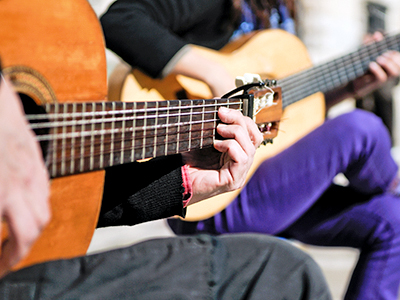Healing Harmonies in Hospital Settings

In the realm of healthcare, where advanced medical treatments and cutting-edge technologies dominate the landscape, a seemingly simple yet profoundly impactful intervention has been gaining recognition for its healing potential – music. The therapeutic power of music has been harnessed to alleviate pain, reduce stress, and enhance overall well-being among hospital patients. This article explores the transformative effects of music in healthcare settings and how it serves as a harmonious remedy for those navigating the challenging journey of illness and recovery.
1. Reducing Anxiety and Stress:
Hospitalization can be a source of immense stress and anxiety for patients. The unfamiliar environment, medical procedures, and uncertainty about the future contribute to heightened levels of tension. Music has the ability to act as a soothing balm, providing a sense of comfort and familiarity. Listening to calming melodies or engaging in music therapy sessions has been shown to lower stress hormones, decrease heart rate, and induce a state of relaxation, thereby creating a more conducive healing environment.
2. Pain Management:
Pain is a common companion for many patients in a hospital setting. While medical interventions play a crucial role in pain management, music can complement these efforts by acting as a non-pharmacological analgesic. Studies have demonstrated that patients exposed to music therapy experience reduced perception of pain, allowing for a more tolerable experience during procedures and postoperative recovery. The rhythmic elements of music can serve as a distraction, shifting the focus away from pain and fostering a more positive mindset.
3. Enhancing Mood and Emotional Well-being:
Illness often brings emotional challenges, ranging from feelings of sadness and frustration to fear and loneliness. Music has the remarkable ability to evoke emotions and tap into the innermost recesses of the human psyche. Whether through familiar tunes that bring joy or introspective compositions that encourage reflection, music helps patients navigate the emotional terrain of their journey. This emotional support can contribute to a more positive outlook, which is crucial for the healing process.
4. Facilitating Communication and Connection:
For patients facing communication difficulties, such as those with cognitive impairments or undergoing intensive medical treatments, music provides an alternative channel for expression. Music therapy, conducted by trained professionals, allows patients to communicate and connect with others on a profound level. It transcends language barriers, creating a shared experience that fosters a sense of community and belonging.
5. Personalized Healing:
One of the unique aspects of music therapy is its adaptability to individual preferences. Each patient has a distinct musical taste, and tailoring interventions to align with personal preferences can enhance the therapeutic impact. Whether it’s classical compositions, rhythmic beats, or soulful ballads, the power of music lies in its ability to resonate with individuals on a deeply personal level, making the healing process more meaningful and effective.
Conclusion:
In the dynamic landscape of healthcare, where patient-centered care is increasingly emphasized, the integration of music as a therapeutic modality has emerged as a valuable asset. The healing harmonies of music not only address the physical aspects of illness but also attend to the emotional and psychological dimensions of the patient experience. As hospitals continue to recognize the holistic nature of healthcare, the use of music as a healing tool is poised to play an increasingly integral role in enhancing the well-being of patients across diverse medical settings.
Face the Music with Us
Many never seek treatment for addiction because of the cost. Face the Music Foundation is looking to help as many people as possible take the financial worry out of addiction treatment so they don’t have to choose between their savings and their sobriety. We need your help to get it done.

